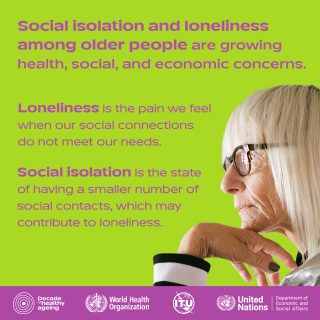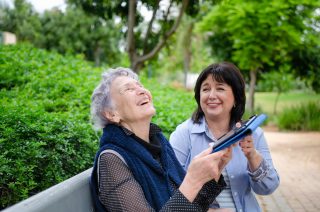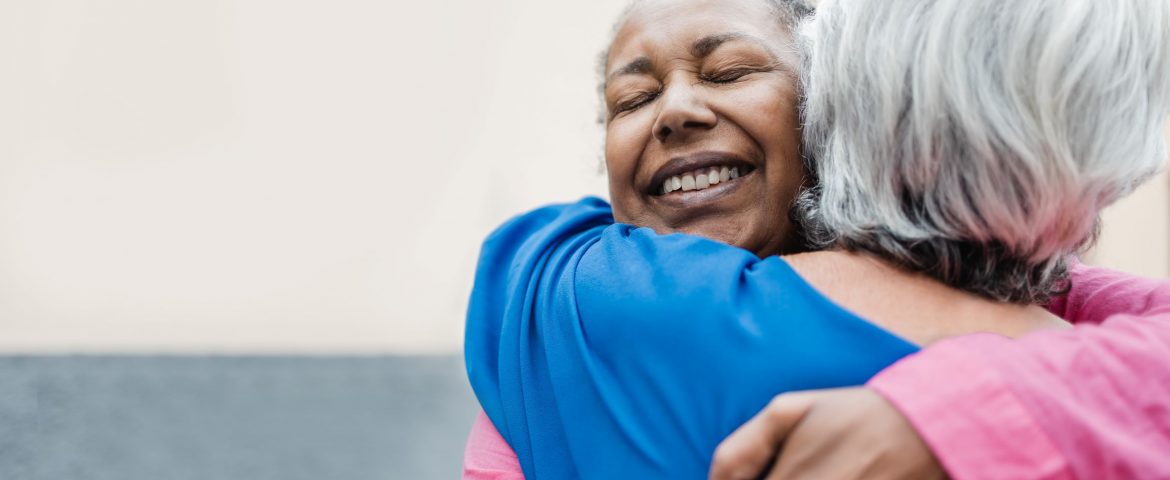By Riley Sweet, MS
This past holiday season, we addressed the loneliness epidemic and offered ways to cope through the holidays. As conversations grow around loneliness, let’s take a look at the topic through the lens of perhaps its most impacted population: older adults.

Organizations that assist older adults have developed their own findings on the matter; Meals on Wheels reports that 27% of their clients say their food delivery drivers are the only people they see on a weekly basis; WHO recognized loneliness as a key physical health issue – much like smoking, obesity, and physical inactivity.
Understanding the loneliness experienced by older adults requires an empathetic approach. With empathy for older adults and their living situations, one can begin to inspire more meaningful connections with the aging loved ones in their lives.

Here are a few simple ways to foster that connection and conquer the loneliness epidemic – one kind act of intentionality at a time.
Give a companion, or companionship.
Companion care is a service that provides physical company and emotional support companionship for older adults. It often includes “odds and ends” services like transportation, grocery shopping or light housework. Companion care can significantly boost the mental health and well-being of your loved one.
Some Medicare benefits may include companion care. If you’re in charge or aware of your loved one’s health benefits, ask about any companion care options included in their plan. 
Schedule some time.
Try creating a written calendar of activities for the person in mind to look forward to. These can be random or routine, indoor or outdoor. Either way, planning some quality time in advance can keep connections strong, and give everyone something positive to look forward to.
For example, pick one day of the week to find and jot down local events to participate in and keep on the calendar for your loved one as a reminder of the “adventures” ahead. Free outdoor fitness classes for individuals with varying abilities, live music in the park, or larger events like ArtPrize are great examples, along with simpler activities such as a weekly card game and takeout.
Or, if you and your spouse need a night out, or some help with daily tasks, call up grandma and grandpa to watch the kids. Whether they come along to run errands, take the kids out for ice cream, or sit with them while you work from home, let them count on being helpful from time to time.
Be a sponge.
Chances are your grandpa, GG, or aunt have collected a lifetime of valuable knowledge and advice that they’d be excited to share with you. Before looking to YouTube for the next “how to” video, think about how the information you’re looking for may be a mere phone call away.
Our elders are a great resource for information on anything from gardening, plumbing, marriage advice, to family medical history and, if you find yourself in need of a trustworthy perspective, don’t think twice about giving them a ring.
They’d be delighted to hear from you. Even a simple question about repotting plants is a valuable opportunity to connect with your loved ones.
Don’t forget to hug.
A simple hug can reduce blood pressure, release cortisol to reduce stress and release oxytocin to increase feelings of being happy and loved. Hugging has even been found to reduce the likelihood of contracting serious diseases. If you’re a hugger, remember to give the older adults in your life a warm hug, gentle squeeze on the shoulder, or just sit next to them when watching TV the next time you see them. It could create a happier – and healthier – connection and bring more joy to your time with one another.
These four intentional changes help to eliminate feelings of loneliness and improve mental and physical health for those you care about. Chances are they may not notice “why” they are feeling better but will just notice things have been different lately.


